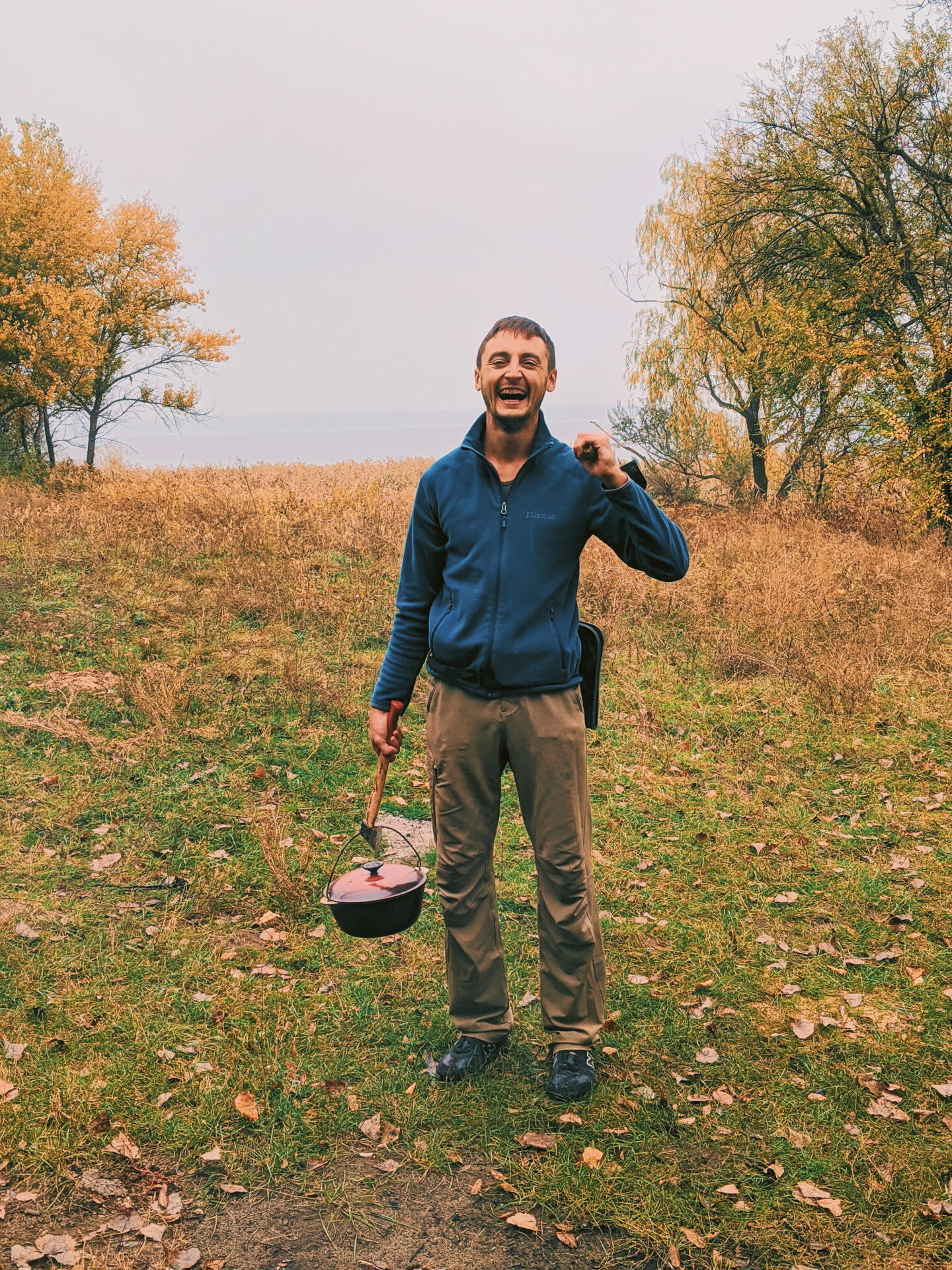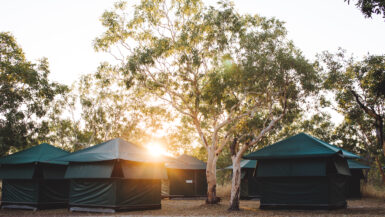Hungary is a country with a rich cultural heritage and breathtaking natural landscapes. From the rolling hills of the countryside to the banks of the Danube River, Hungary offers a unique camping experience for nature lovers. However, as we become more aware of the impact of human activity on the environment, it’s essential to find eco-friendly camping sites that work in harmony with nature. In this article, we’ve compiled a list of the best eco-friendly camping sites in Hungary. These sites are dedicated to preserving the natural environment while providing a comfortable and enjoyable camping experience. So, if you’re planning a camping trip to Hungary, be sure to check out these eco-friendly options.
Introduction to eco-friendly camping and its benefits
Camping is a popular way for people to explore and connect with the natural environment. However, traditional camping practices can have a negative impact on the environment, including damage to natural habitats, pollution, and waste. In recent years, there has been a growing trend towards eco-friendly camping, which focuses on minimizing the impact of camping on the environment.
Eco-friendly camping, also known as sustainable camping or green camping, involves using environmentally-friendly practices and equipment to reduce waste, minimize energy consumption, and protect natural habitats. This type of camping promotes responsible tourism and encourages campers to respect the natural environment.
There are many benefits to eco-friendly camping. First and foremost, it helps to preserve natural habitats and protect wildlife. It also reduces waste and pollution, which helps to keep the environment clean and healthy. Additionally, eco-friendly camping can be more cost-effective in the long run, as it encourages the use of reusable and sustainable equipment.
As more people become aware of the impact of traditional camping practices on the environment, eco-friendly camping is becoming increasingly popular. Many camping sites around the world are now offering eco-friendly options, including those in Hungary. In the following sections, we will explore some of the best eco-friendly camping sites in Hungary and the unique features and amenities they offer.
Overview of Hungary’s natural beauty and camping culture
Hungary is a country known for its stunning natural landscapes, including beautiful forests, rolling hills, and sparkling lakes. The country is also home to many historic and cultural sites, making it a popular destination for tourists from around the world.
Camping is a popular activity in Hungary, with many people enjoying the opportunity to explore the country’s natural beauty while camping in the great outdoors. There are many different types of camping sites in Hungary, from traditional tent sites to more luxurious glamping options.
One of the most popular areas for camping in Hungary is Lake Balaton. This large freshwater lake is a popular destination for swimming, fishing, and boating, and there are many campsites located along its shores. Other popular camping areas in Hungary include the Danube Bend, the Bükk Mountains, and the Hortobágy National Park.
Hungary’s camping culture is deeply rooted in the country’s history and traditions. Many Hungarians grew up camping with their families and continue to enjoy camping as adults. As a result, there is a strong sense of community among campers in Hungary, with many campsites offering social events and activities for campers to enjoy together.
Overall, Hungary’s natural beauty and camping culture make it an ideal destination for eco-friendly camping. In the following sections, we will explore the criteria for selecting eco-friendly camping sites in Hungary and some of the top eco-friendly camping sites in the country.
Criteria for selecting eco-friendly camping sites in Hungary
When selecting an eco-friendly camping site in Hungary, there are several criteria to consider. These include:
Environmental impact
One of the most important criteria for selecting an eco-friendly camping site is its environmental impact. Look for campsites that use sustainable practices, such as recycling, composting, and using renewable energy sources.
Natural surroundings
Another important factor to consider is the natural surroundings of the campsite. Look for sites that are located in natural areas, such as parks or forests, and that offer opportunities for hiking, birdwatching, and other outdoor activities.
Amenities
While eco-friendly camping is often associated with a more minimalist approach, it is still important to consider the amenities offered by the campsite. Look for sites that offer clean and well-maintained facilities, such as bathrooms and showers, as well as access to fresh water and fire pits.
Community involvement
Finally, consider the level of community involvement at the campsite. Look for sites that offer opportunities for campers to participate in environmental education programs or community service projects, such as trail maintenance or litter clean-up.
By considering these criteria when selecting an eco-friendly camping site in Hungary, you can ensure that you are making a positive impact on the environment while enjoying all that the country has to offer. In the following sections, we will explore some of the top eco-friendly camping sites in Hungary and the unique features and amenities they offer.
Top eco-friendly camping sites in Hungary, including their unique features and amenities
Hungary is home to many eco-friendly camping sites that offer a range of unique features and amenities. Here are some of the top eco-friendly camping sites in the country:
1. Sóstó Nature Camping
Located in the heart of Hungary’s Sóstó Protected Area, this eco-friendly camping site offers a range of activities, including hiking, birdwatching, and fishing. The campsite is powered by solar energy and offers composting toilets and showers that use rainwater.
2. Camping Tököl
This eco-friendly camping site is located just outside of Budapest and offers a range of sustainable features, including composting toilets, solar-powered showers, and recycling facilities. The campsite also offers a range of activities, including canoeing, kayaking, and cycling.
3. Kacsa Tanya
This eco-friendly camping site is located in the heart of Hungary’s wine country and offers a range of unique features, including a natural swimming pool, a vineyard, and an organic garden. The campsite is powered by solar energy and offers composting toilets and showers that use rainwater.
4. Csödei Farm Camping
Located in the Bükk Mountains, this eco-friendly camping site offers stunning views of the surrounding landscape and a range of sustainable features, including composting toilets, solar-powered showers, and recycling facilities. The campsite also offers a range of activities, including hiking and mountain biking.
5. Glamp-Inn
For those looking for a more luxurious eco-friendly camping experience, Glamp-Inn offers a range of glamping options, including fully-equipped tents and cabins. The campsite is powered by solar energy and offers composting toilets and showers that use rainwater. The campsite also offers a range of activities, including yoga and meditation classes.
These are just a few of the many eco-friendly camping sites in Hungary. By choosing to stay at one of these sites, you can enjoy all that Hungary has to offer while minimizing your impact on the environment. In the following sections, we will explore some tips for sustainable camping practices while staying at these sites.
Tips for sustainable camping practices while staying at these sites
While staying at eco-friendly camping sites in Hungary, there are several things you can do to minimize your impact on the environment and promote sustainable tourism. Here are some tips for sustainable camping practices:
1. Reduce waste
One of the easiest ways to reduce your impact on the environment while camping is to minimize waste. Bring reusable containers and utensils, and avoid single-use products as much as possible. When disposing of waste, be sure to follow the campsite’s recycling and composting guidelines.
2. Conserve water
Water is a precious resource, especially in areas with limited access to fresh water. Be mindful of your water usage while camping by taking shorter showers, turning off the tap when brushing your teeth, and collecting rainwater for washing dishes.
3. Use eco-friendly products
When selecting camping products, choose eco-friendly options whenever possible. Look for products made from sustainable materials, such as bamboo or recycled plastic, and avoid products that contain harmful chemicals.
4. Respect wildlife
When camping in natural areas, it is important to respect the local wildlife. Avoid feeding wild animals and be mindful of your impact on their habitat. Keep a safe distance from wildlife and avoid disturbing their natural behavior.
5. Leave no trace
Finally, one of the most important principles of sustainable camping is to leave no trace. This means leaving your campsite in the same condition as you found it and avoiding any damage to the local environment. Be sure to properly dispose of all waste and avoid damaging vegetation or disturbing natural features.
By following these tips for sustainable camping practices, you can help to minimize your impact on the environment while enjoying all that Hungary’s eco-friendly camping sites have to offer. In the following sections, we will explore interviews with campsite owners and visitors about their experiences with eco-friendly camping in Hungary.
Interviews with campsite owners and visitors about their experiences with eco-friendly camping in Hungary
To gain a better understanding of eco-friendly camping in Hungary, we spoke with several campsite owners and visitors about their experiences. Here are some of their insights:
Campsite owner, Sóstó Nature Camping:
“We believe that eco-friendly camping is the future of camping. By using sustainable practices and equipment, we can minimize our impact on the environment and preserve natural habitats for future generations. Our campsite is powered by solar energy and we offer composting toilets and showers that use rainwater. We also offer educational programs to help visitors learn about the local environment and how to protect it.”
Campsite visitor, Camping Tököl:
“I was impressed by the sustainable practices at Camping Tököl. They have composting toilets, solar-powered showers, and recycling facilities, which made me feel good about my impact on the environment. The campsite also offers a range of activities, including canoeing and kayaking, which allowed me to connect with nature in a meaningful way.”
Campsite owner, Kacsa Tanya:
“At Kacsa Tanya, we believe that eco-friendly camping is about more than just minimizing our impact on the environment. We also strive to create a sustainable community that supports local agriculture and promotes healthy living. Our campsite features a natural swimming pool, a vineyard, and an organic garden, which allows visitors to connect with nature in a meaningful way.”
Campsite visitor, Csödei Farm Camping:
“I loved the stunning views at Csödei Farm Camping. The campsite is located in the Bükk Mountains and offers a range of sustainable features, including composting toilets, solar-powered showers, and recycling facilities. The campsite also offers a range of activities, including hiking and mountain biking, which allowed me to connect with nature and explore the local environment.”
These interviews highlight the importance of eco-friendly camping in Hungary and the unique features and amenities offered by eco-friendly camping sites in the country. In the following sections, we will explore the future of eco-friendly camping in Hungary and the potential for growth in sustainable tourism.
Comparison of Eco-Friendly Camping Sites in Hungary with Other European Countries
Hungary has a lot to offer when it comes to eco-friendly camping sites. However, how do these sites compare to those in other European countries? Let’s take a closer look.
Many European countries have embraced eco-tourism and have developed a wide range of eco-friendly camping sites. Countries like Switzerland, Germany, and Denmark have been at the forefront of this movement. These countries have established strict environmental regulations, and their camping sites reflect that.
Switzerland, for example, has some of the most beautiful and eco-friendly camping sites in Europe. These sites offer a wide range of amenities, including solar-powered showers, composting toilets, and recycling facilities. Campsites in Germany and Denmark are also known for their sustainable practices. They use renewable energy sources, have strict waste management policies, and promote sustainable tourism.
Compared to these countries, Hungary is still a developing eco-tourism destination. However, Hungary has made significant progress in recent years. Many of the country’s eco-friendly camping sites have implemented sustainable practices, such as using renewable energy sources and promoting waste reduction. Additionally, Hungary’s stunning natural beauty and rich cultural heritage make it a unique destination for eco-tourists.
One of the advantages of eco-friendly camping in Hungary is that it is still an affordable option. Camping fees are generally lower than in other European countries, and visitors can enjoy a wide range of activities, including hiking, cycling, and exploring the country’s historic sites.
Overall, while Hungary may not have as many eco-friendly camping sites as other European countries, it is making significant progress. Hungary’s unique cultural heritage and natural beauty make it an attractive destination for eco-tourists. As Hungary continues to develop its eco-tourism industry, we can expect to see more innovative and sustainable camping sites in the future.
Future of Eco-Friendly Camping in Hungary and Potential for Growth in Sustainable Tourism
Hungary has great potential for growth in sustainable tourism and eco-friendly camping. With its stunning natural beauty, rich cultural heritage, and commitment to sustainable practices, Hungary is an attractive destination for eco-tourists.
In recent years, there has been a growing trend towards eco-tourism in Hungary. More and more camping sites are implementing sustainable practices, such as using renewable energy sources, promoting waste reduction, and supporting local communities. This trend is expected to continue in the future as more people become aware of the importance of sustainable tourism.
The Hungarian government is also taking steps to promote eco-tourism and sustainable practices. They have implemented various policies and initiatives to encourage the development of eco-friendly camping sites and other sustainable tourism activities. For example, the government has established national parks and protected areas to preserve the country’s natural beauty and biodiversity.
The potential for growth in sustainable tourism in Hungary is significant. As more people become aware of the importance of sustainable practices, the demand for eco-friendly camping sites and other sustainable tourism activities is likely to increase. This growth will not only benefit the environment but also the local communities and economy.
In conclusion, Hungary has great potential for growth in sustainable tourism and eco-friendly camping. With its stunning natural beauty, rich cultural heritage, and commitment to sustainable practices, Hungary is an attractive destination for eco-tourists. The trend towards eco-tourism is expected to continue in the future as more people become aware of the importance of sustainable practices. The government’s initiatives to promote sustainable tourism will also contribute to the growth of eco-friendly camping sites and other sustainable tourism activities.
Conclusion and Call to Action for Promoting Eco-Friendly Camping in Hungary
Eco-friendly camping is a great way to enjoy Hungary’s stunning natural beauty while minimizing our impact on the environment. Hungary has a lot to offer when it comes to eco-friendly camping sites, and the country is making significant progress in promoting sustainable tourism.
In this article, we have explored some of the best eco-friendly camping sites in Hungary, including their unique features and amenities. We have also discussed tips for sustainable camping practices and the potential for growth in sustainable tourism in Hungary.
As responsible travelers, it is up to us to make a difference. By choosing to stay at eco-friendly camping sites, we can support sustainable tourism and contribute to the preservation of Hungary’s natural beauty. We can also reduce our carbon footprint by practicing sustainable camping practices, such as using reusable water bottles and reducing waste.
In conclusion, Hungary is a unique and beautiful country that offers a range of eco-friendly camping sites for travelers. By promoting sustainable tourism and supporting eco-friendly camping, we can help preserve Hungary’s natural beauty for future generations to enjoy. Let us all do our part to protect the environment while experiencing the best that Hungary has to offer.





Leave a reply